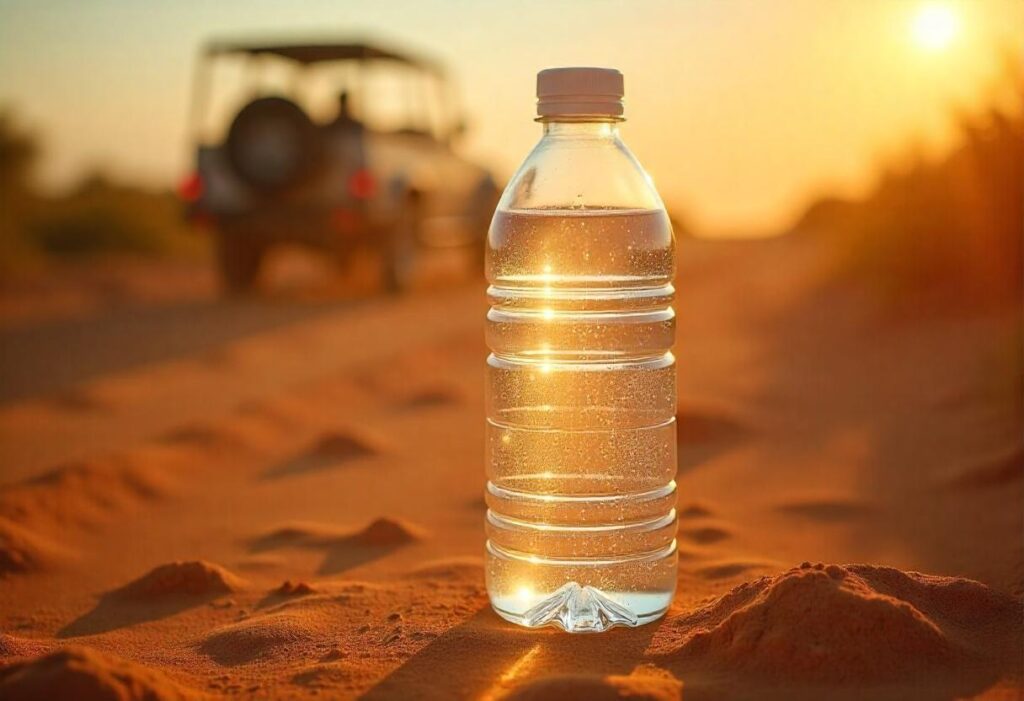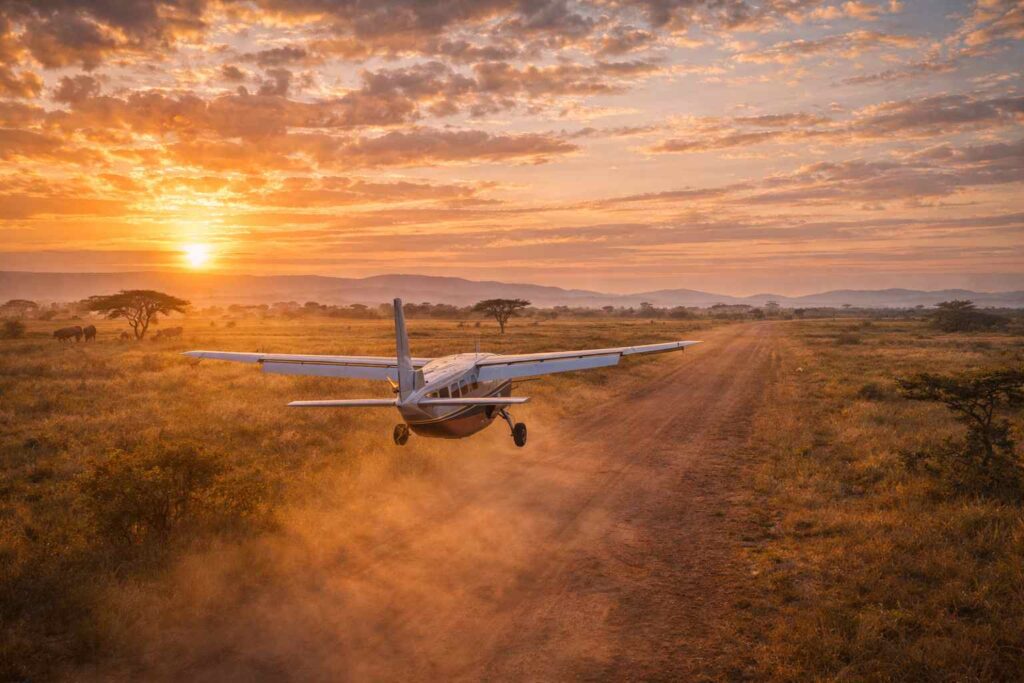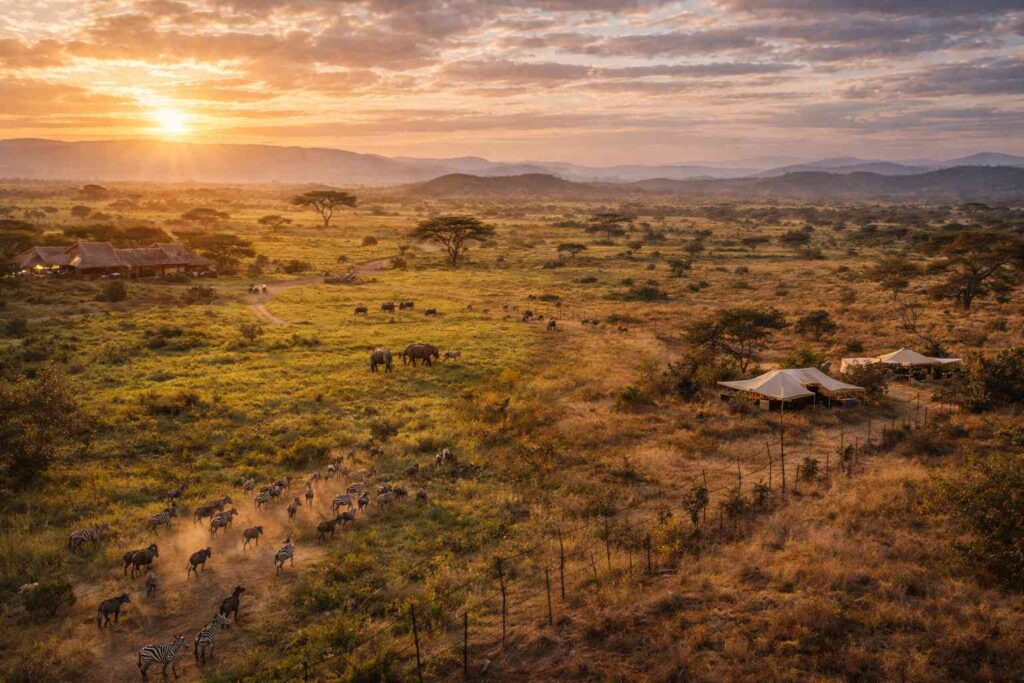A safe safari is a better safari—here’s how to protect your health while enjoying the wild.
Understanding safari health risks
Safaris are generally safe, but you’re still traveling in remote areas where medical access might be limited. Knowing the common health concerns in advance helps prevent issues before they arise.
Common health concerns on safari
- Dehydration from heat and sun exposure
- Foodborne illness from unsafe meals or water
- Sunburn and heatstroke
- Insect bites, particularly mosquitoes (malaria risk in some areas)
- Stomach issues due to unfamiliar food
Food and water safety on safari
What you eat and drink can significantly impact your safari experience. Follow these simple guidelines to stay well-nourished and avoid stomach troubles.
Can you drink the water on safari?
- Always drink bottled or filtered water. Avoid tap water unless confirmed safe by your lodge.
- Use purified water to brush your teeth in remote camps.
- Avoid ice unless you’re certain it’s made with safe water.
Tips for eating safely
- Eat hot, freshly cooked meals—buffets in remote camps can sit out too long.
- Choose fruits you can peel yourself (like bananas or oranges).
- Avoid street food in towns before or after your safari, unless you’re sure it’s hygienically prepared.
Staying safe in the sun
Africa’s sun is intense, especially in open vehicles or during walks. Without protection, sunburn or heat exhaustion can ruin your trip.
Sun protection tips for safari travelers
- Wear a wide-brimmed hat, sunglasses, and long-sleeved breathable clothing.
- Use broad-spectrum sunscreen (SPF 30+), and reapply every 2–3 hours.
- Seek shade during midday game drives if possible.
Dealing with heat and staying hydrated
It’s easy to underestimate how much water you need during a safari.
How much water should you drink?
- Aim for at least 2–3 liters per day, especially if you’re on a walking or mobile safari.
- Carry a reusable water bottle, and refill it at lodges or with filtered sources.
- Avoid excessive caffeine and alcohol, which dehydrate you faster in the heat.
Protecting yourself from insects and diseases
Mosquitoes and other insects can carry illnesses like malaria or dengue. Depending on your destination, protection is key.
Insect bite prevention tips
- Use a DEET-based insect repellent or one recommended for safari travel.
- Wear long pants and sleeves, especially at dawn and dusk.
- Sleep under mosquito nets provided by your camp or lodge.
- Consult a travel doctor about malaria prophylaxis before your trip.
Essential health items to pack
Include these items in your travel bag for extra peace of mind:
- Personal first-aid kit with antihistamines, antiseptic cream, and painkillers
- Oral rehydration salts and anti-diarrheal medication
- Sunscreen and lip balm with SPF
- Prescription medications in original packaging
- Insect repellent and bite cream
- Water purification tablets (as backup)
Final tips for a safe and healthy safari
- Make sure your routine vaccinations are up to date.
- Visit a travel clinic 6–8 weeks before your trip for personalized advice.
- Let your guide know if you’re feeling unwell—early action is crucial in remote areas.
- Choose reputable safari operators with strong safety and hygiene standards.
Conclusion
A little preparation goes a long way. Staying healthy on safari is all about being aware, staying hydrated, and taking simple precautions. By prioritizing your well-being, you can fully enjoy the extraordinary experience of Africa’s wilderness—worry-free.
Frequently asked questions
Yes. Travel insurance is strongly recommended for any safari. It should cover medical emergencies, trip cancellations, and evacuation, especially if you’re traveling to remote areas far from hospitals.
Most lodges and camps can accommodate vegetarian, vegan, gluten-free, or other special diets with advance notice. Let your operator know your dietary needs when booking.
Many safari lodges are family-friendly and offer tailored experiences for children. However, not all destinations are malaria-free, and some camps have age restrictions. Choose wisely based on your kids’ ages and energy levels.
Typical vaccinations include hepatitis A and B, typhoid, tetanus, and sometimes yellow fever (depending on your destination). Always consult a travel clinic at least 6 weeks before departure.
Absolutely. It’s a good idea to bring sealed, non-perishable snacks, especially if you have dietary restrictions. Also, bring all personal medications in their original packaging, along with prescriptions.






